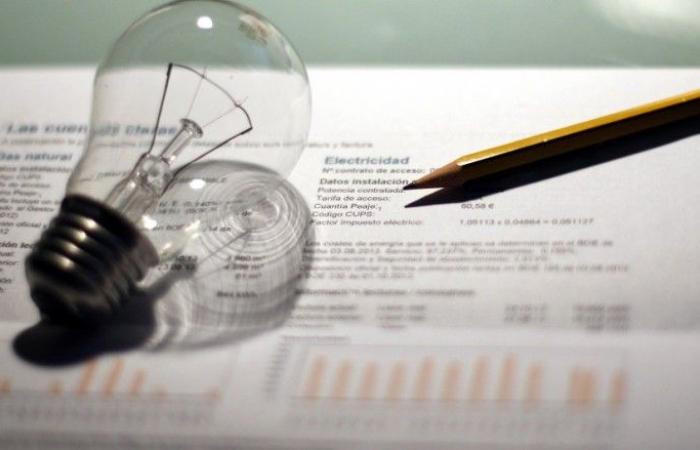Regulator’s decision implies an increase in tariffs from June
The Energy Services Regulatory Authority (ERSE) announced in a statement a proposal to exceptionally set electricity tariffs from June 1st. According to the regulator, the decision is motivated by the volatility seen in energy prices on the wholesale market, which reached an average of 44.4 euros per Megawatt (MWh) in the first quarter of the year.
“The urgency in this exceptional fixing of electricity tariffs is related to the strong volatility of prices
of energy registered on the wholesale market (average of 44.4 euros per MWh in the first quarter), compared to the
average reference value predicted by ERSE for the wholesale market in 2024 (88.3 euros per MWh)can also be read in the explainer created by the regulatory entity to clarify citizens.
In the documents issued, ERSE explains that the exceptional tariff setting aims to “adapt two of the main components of consumer bills”, the energy tariff and the network access tariff, to current market conditions to avoid creating “deviations and debt tariff” that would have to be paid by all consumers over the next few years.
In addition to the more immediate measure of setting tariffs, and taking into account the volatility of prices recorded last year, which ended up increasing the tariff debt in 2024, the regulator decided to “perfect” the quarterly tariff review mechanism. This way, it will be possible to simultaneously and automatically adjust energy and network access tariffs.
The regulator also warns that the price reduction in the wholesale electricity market has two implications in opposite directions. If, on the one hand, it causes a drop in the price of the energy component in the bill, because suppliers can buy cheaper electricity, on the other, it increases network access tariffs that are paid by all consumers, whether they are in the regulated or liberalized market. .
The increase in tariffs naturally has an impact on consumers. For those who still remain in the regulated market, around 908 thousand in February according to ERSE, the effect will even be a drop in the final price of electricity, even if it is negligible. There will be a 0.1% decrease in final prices from June 1st, as the decrease in the energy component ends up offsetting the increase in network access tariffs.
However, for consumers in the free market, around 5.6 million until February, the effects will depend on the commercial policy of the supplier from whom they contract energy. Even so, ERSE points out that prices in the wholesale electricity market have been falling, meaning that free market suppliers may adjust their offers accordingly. If suppliers eventually decide to make these reductions in the energy component, they will be able to partially or completely offset the increase in network access tariffs.
But why do they have to raise tariffs?
The value defined for network access tariffs contributes not only to the variation in tariffs for using the transmission and distribution networks, which are set by the regulator, but also the so-called Global System Usage Tariff, which is affected by “ costs of energy policy, sustainability and general economic interest”, explains ERSE. According to the entity, this guaranteed remuneration is related to “historic contracts that have an average value of around 102 euros per MWh and that represented, in 2023, around 60% of total renewable production and 32.6% of consumption”, he indicated.
In short, if the price on the wholesale market is below the value of these contracts, the difference is paid to producers, which generates an extra cost for the national electricity system, which ends up being paid by all consumers. When the opposite happens and prices in the wholesale market are higher than production prices with guaranteed remuneration, there is an extra gain that accrues to consumers through network access tariffs, as happened in 2022 and 2023, benefiting the final bill.
In this sense, ERSE indicates, the exceptional review aims, in addition to updating the energy component of tariffs, to change
network access tariffs in order to “accommodate the deviation generated between the real price of electricity sold on the wholesale market and the price estimated by ERSE for 2024”. If this did not happen, he says, a tariff deviation would most likely be created which would end up resulting in costs for all consumers in future tariffs.
In just 5 steps, you will find the most effective strategy for creating wealth with your salary.
https://bit.ly/GanharDinheiro_ComoCriarRiquezaComUmSalárioNormal







